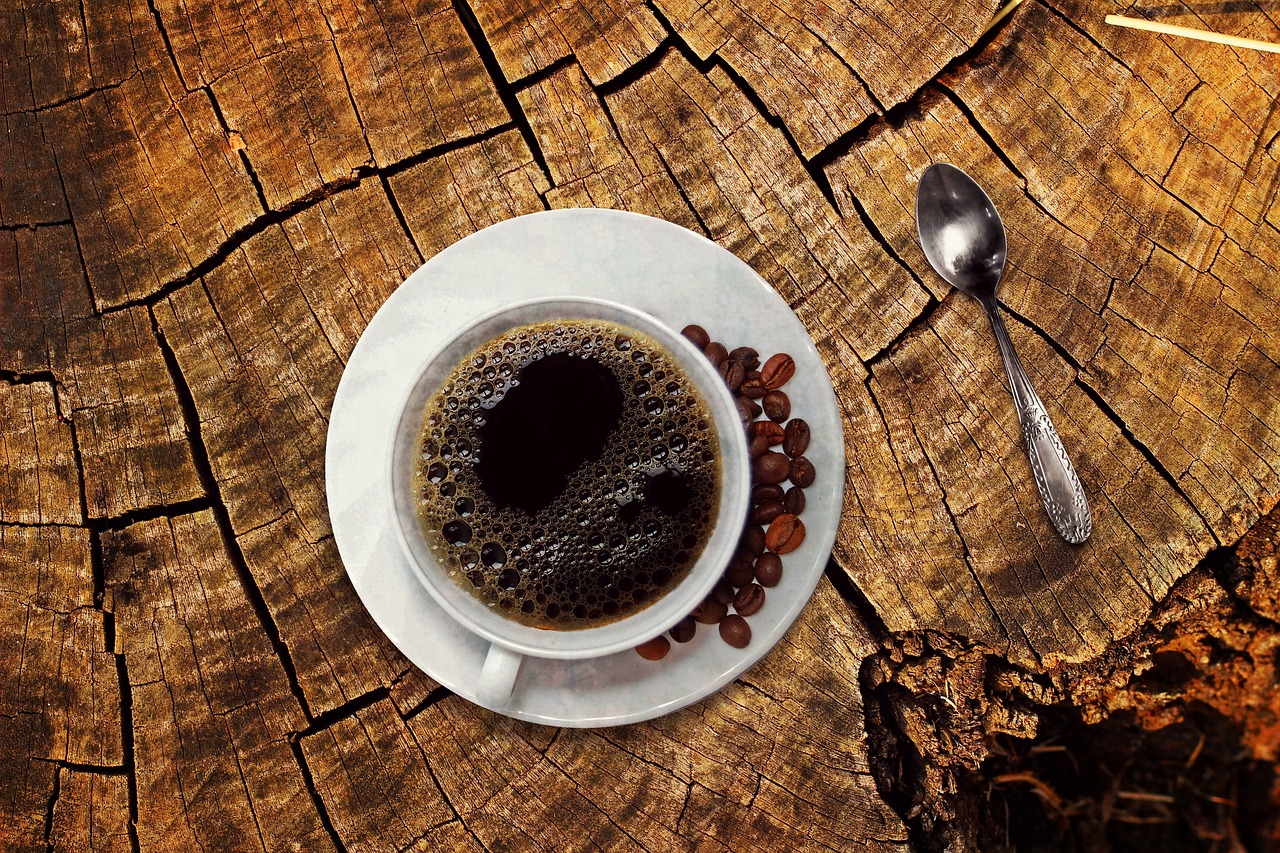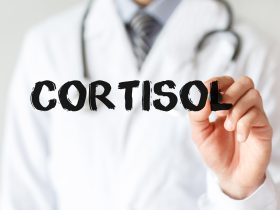Embracing a daily caffeine fix has become a norm for many, with the invigorating aroma of coffee and the buzz of energy drinks weaving into daily routines. However, the love affair with caffeine can sometimes lead to an overstimulated state and undesirable side effects.
A 2023 study published in the European Review for Medical and Pharmacological Sciences reveals that between 80% and 90% of US adults and children regularly indulge in caffeine consumption.
While the initial surge of energy from caffeine can be enticing, its downsides are well-documented. Jitteriness, digestive discomfort, and disruptions in sleep patterns are familiar consequences. Recognizing the tipping point where the love for caffeine transforms into a less-than-desirable relationship is crucial.
The impact of quitting caffeine or reducing consumption depends on the quantity consumed daily. Heavy caffeine use is classified as exceeding 400 mg per day, equivalent to approximately four cups of coffee or two energy shots.
If you find yourself on the higher end of this spectrum, there are tangible benefits to scaling back.
Navigating Caffeine Withdrawal
Embarking on the path of reducing caffeine intake or bidding farewell to it altogether can be accompanied by a set of challenges known as withdrawal symptoms. It’s important to recognize that caffeine, as a stimulant, can lead to dependency, and efforts to break free from its grasp may be met with certain discomforts.
When regular caffeine consumers decide to quit, withdrawal symptoms often manifest over a span of three to seven days. This period can be characterized by various symptoms, including fatigue, headaches, and low energy.
Whether opting for a cold-turkey approach or a gradual reduction in caffeine intake, certain strategies can ease the discomfort of withdrawal:
- OTC Medication: Over-the-counter headache relief medication can alleviate withdrawal-induced headaches.
- Hydration: Staying well-hydrated supports your body through the adjustment period, minimizing the intensity of withdrawal symptoms.
- Adequate Rest: Prioritize ample rest to counteract fatigue and promote overall well-being during the withdrawal phase. Read more about why is it necessary to get enough sleep.
7 Reasons Why You Should Quit Drinking Coffee
- Fewer Headaches
Are persistent headaches taking a toll on your daily life? It’s possible that your caffeine consumption might be a significant contributor. Let’s delve into how caffeine can influence headaches, the potential for migraines, and why quitting caffeine might be the solution you’ve been seeking.
According to the American Migraine Foundation, caffeine has the potential to trigger migraines, particularly in individuals prone to them. The narrowing of blood vessels around the brain caused by caffeine can set off a chain reaction leading to dilated blood vessels, contributing to the onset of headaches.
For those hoping to find relief from headaches by quitting caffeine, it’s important to note that the process may not be as straightforward as expected. Caffeine withdrawal can result in low energy, difficulty concentrating, irritability, and worsening headaches. Abruptly stopping caffeine intake, especially if it’s a daily or substantial habit, can trigger a cascade of events that exacerbate headaches.
Quitting caffeine “cold turkey” might not be the most effective approach, as headaches are likely to intensify before improving. It is recommended to have a gradual reduction in caffeine intake over a week or two to mitigate the severity of withdrawal symptoms. Consider slowly transitioning from regular coffee to decaf to ease the process and limit the impact on your well-being.
- Benefits Your Digestive System
If you’ve ever experienced the urgency of a “coffee poop,” you’re not alone. Caffeine, a known stimulant, can impact your digestive system, leading to increased muscle contractions and faster gut motility.
Caffeine’s ability to stimulate muscle contractions and gut motility is well-documented. For many individuals, a cup of coffee serves as a morning ritual to prompt a bowel movement. Relying on coffee for this purpose can lead to a slower bathroom routine in the morning once the caffeine is eliminated.
There are a few strategies to alleviate this discomfort. Switching to hot water is one option, as hot drinks can promote smooth muscle relaxation, aiding in bowel movements. Additionally, increasing fiber intake at breakfast can be beneficial. Foods like oatmeal and bananas are rich in fiber and can help get things flowing.
- Improved Sleep and Energy Levels
If you find yourself tossing and turning at night, struggling with headaches, or feeling perpetually groggy during the day, your caffeine consumption might be to blame. Let’s explore the relationship between caffeine, sleep, and energy levels, and discover how quitting caffeine could positively impact your well-being.
Have you ever wondered why your sleep isn’t as restful as it could be? Caffeine, a common stimulant found in coffee and other beverages, could be the culprit. Research indicates that caffeine can steal precious minutes of sleep, reducing your time in dreamland by about 45 minutes.
When deprived of sufficient sleep, people often turn to caffeine the next day to combat drowsiness. This creates a cycle of poor sleep followed by increased caffeine intake, as reported in a 2023 review published in Sleep Medicine Reviews. The stimulating effects of caffeine can linger in your system for hours, potentially impacting your ability to fall asleep at night.
Identifying the signs that caffeine is affecting your sleep is crucial. If you experience difficulty falling asleep, frequent headaches, nausea, or feelings of nervousness, caffeine might be the culprit. By giving up caffeine, you could experience a significant improvement in the quality of your rest, especially beneficial for individuals dealing with insomnia.
Quitting caffeine may not be a walk in the park initially. Energy levels might drop when someone quits caffeine, leading to daytime drowsiness or sluggishness. However, this temporary adjustment period is a small price to pay for the potential long-term benefits.
While it’s uncertain whether your energy levels will return to their pre-coffee state, quitting caffeine can have positive effects on your overall energy. If you typically consume coffee later in the day, discontinuing this habit might result in better sleep at night, ultimately contributing to increased daytime energy levels.
Quitting caffeine might temporarily throw off your sleep schedule. To regain consistency, try waking up at the same time each day. Establishing a regular wake-up time helps your body adjust to a more predictable sleep pattern. If you struggle to fall asleep, consider incorporating guided meditation or simple pre-bedtime relaxation techniques for a more restful night.
- Improved Oral Health
Your daily cup of coffee might be a beloved ritual, but did you know it could be impacting the health of your teeth?
Caffeine, known for its diuretic properties, not only increases the frequency of bathroom trips but also dries out your mouth. Dry mouth is detrimental to oral health. Saliva, a natural defense mechanism, contains minerals that prevent tooth decay and aid in washing away leftover food particles from the teeth and gums.
For those concerned about coffee stains on their teeth, there are effective strategies to address this issue. Scheduling routine dental cleanings can help lift some stains from tooth enamel. Additionally, experimenting with whitening toothpaste can be a simple yet effective way to combat discoloration caused by coffee consumption.
- Eases Anxiety and Jitters
Caffeine, known for its stimulating effects on the nervous system, has the potential to trigger anxiety. People diagnosed with panic disorders are particularly susceptible to heightened feelings of edginess after consuming caffeine.
For some individuals, caffeine can exacerbate baseline anxiety, leading to symptoms such as muscle tremors, a rapid heart rate, and an overall sense of nervousness.
If you frequently experience jitteriness or heightened anxiety after consuming caffeinated beverages, quitting caffeine might provide relief. Individuals who feel anxious due to caffeine intake could find a calmer state by breaking the habit.
It’s essential to recognize that individual responses to caffeine vary, and the degree of anxiety induced by caffeine can differ from person to person.
An interesting aspect of caffeine’s impact on anxiety is its variability. The extent to which caffeine induces anxiety can differ for each person, regardless of the intensity of their caffeine habit.
Whether you consume caffeine lightly or heavily, the individual response to caffeine-related anxiety is unique.
- Symptoms of GERD May Ease Up
Dealing with gastroesophageal reflux disease (GERD) can be challenging, and if you’re a coffee enthusiast, you might be exacerbating your symptoms without even realizing it.
GERD symptoms can vary from person to person, and certain triggers may impact one individual while not affect another. Caffeine is a known trigger for some people with GERD. If you suspect that caffeine might be contributing to your GERD symptoms, reducing your intake could be a helpful step.
While it may require some adjustments and patience, quitting caffeine could provide lasting relief from GERD symptoms. By understanding your triggers and making conscious choices to avoid caffeine, you may find a significant improvement in your overall well-being.
- You Can Have a Better and Healthier Morning Routine
Saying farewell to your daily caffeine fix might feel like a significant change, but it opens the door to a world of delightful morning alternatives.
Discovering a caffeine-free morning ritual doesn’t mean sacrificing flavor or enjoyment. There’s a plethora of non-caffeinated beverages waiting to be explored.
Dive into the world of herbal teas, where flavors like Glazed Lemon Loaf, Calm Chamomile, and Organic Baked Cinnamon Apple can tantalize your taste buds. These teas offer a soothing and aromatic experience to kickstart your day.
Take this opportunity to up your smoothie game and infuse your mornings with a burst of energy. Incorporating fruits into your smoothies provides easily digestible carbohydrates, delivering a natural boost of energy. Combine this with yogurt to stabilize blood sugar levels, ensuring sustained energy throughout the entire morning. It’s a delicious and nutritious alternative to your usual caffeine source.
If you’re accustomed to sipping on sodas, consider making a refreshing swap. Exchange your regular soda for seltzer water, creating a fizzy and satisfying beverage without the caffeine content. This simple change not only reduces your caffeine intake but also introduces a new and exciting element to your morning routine.















Find Us on Socials